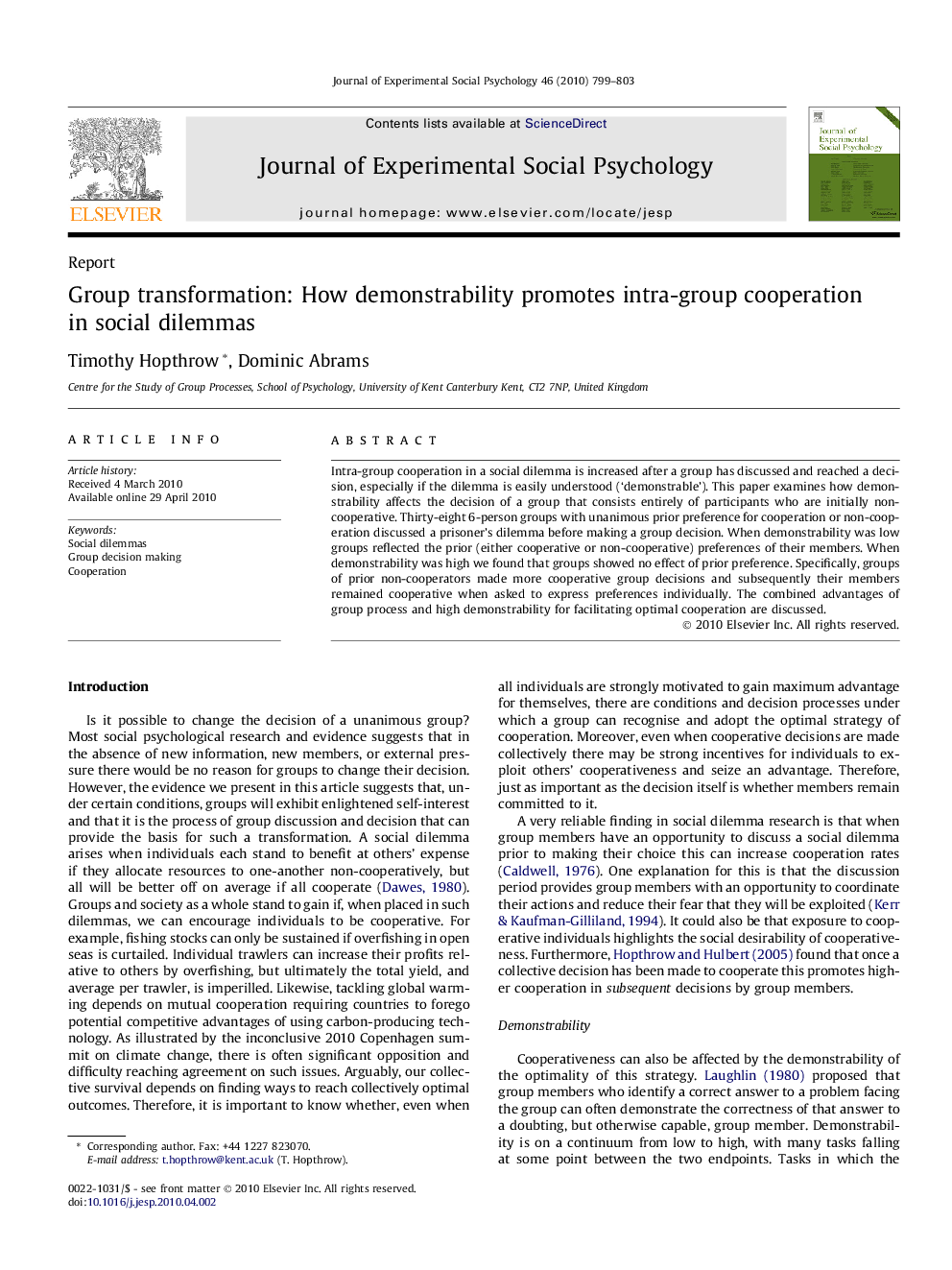| Article ID | Journal | Published Year | Pages | File Type |
|---|---|---|---|---|
| 948656 | Journal of Experimental Social Psychology | 2010 | 5 Pages |
Intra-group cooperation in a social dilemma is increased after a group has discussed and reached a decision, especially if the dilemma is easily understood (‘demonstrable’). This paper examines how demonstrability affects the decision of a group that consists entirely of participants who are initially non-cooperative. Thirty-eight 6-person groups with unanimous prior preference for cooperation or non-cooperation discussed a prisoner’s dilemma before making a group decision. When demonstrability was low groups reflected the prior (either cooperative or non-cooperative) preferences of their members. When demonstrability was high we found that groups showed no effect of prior preference. Specifically, groups of prior non-cooperators made more cooperative group decisions and subsequently their members remained cooperative when asked to express preferences individually. The combined advantages of group process and high demonstrability for facilitating optimal cooperation are discussed.
